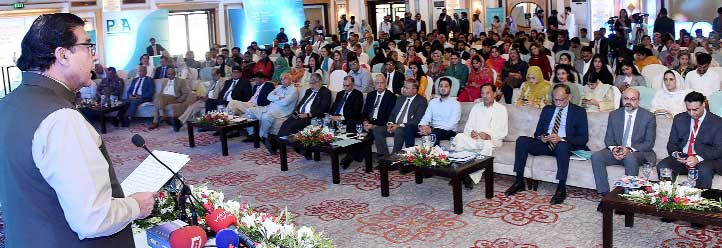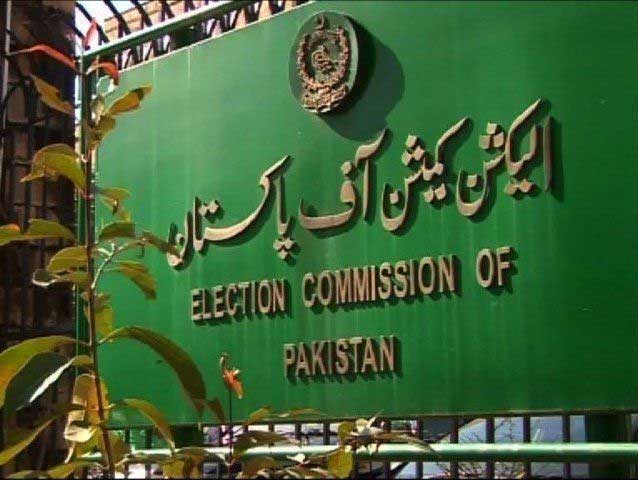ISLAMABAD: A two-day forum, organized by the Ministry of Planning, Development and Special Initiatives, which started here Tuesday deliberated upon the importance of good governance to combat challenges being faced by countries.
The event titled “Pakistan Governance Forum-2023” focused on developing a roadmap for a stable, transparent, Agile and Responsible (STAR) governance system in the country.
The forum, being held under a landmark initiative of ‘Turnaround Pakistan’, is anticipated to serve as a pivotal platform for the exchange of ideas and the formulation of a comprehensive roadmap that will shape the future of governance in Pakistan.
The event was attended by hundreds of prominent figures from diverse sectors, political leaders, experts, and representatives from civil society who deliberated on a wide range of crucial aspects of governance.
Minister for Planning, Development and Special Initiatives Professor Ahsan Iqbal was the chief guest at the occasion.
During the two-day moot as many as 24 sessions are being held side-by-side under different themes in which experts shared their expertise, giving solutions to the confronted challenges in diverse fields.
In the inaugural session, Planning Minister Ahsan Iqbal highlighted the critical role of good governance in the country to effectively confront challenges amid the rapid global transformation.
He acknowledged the challenges posed by rapid technological advancements, social transformation, and the growing demand for active citizen participation in governance.
He stressed the need for a balanced approach that embraced change while preserving the stability and order in society.
The minister said the 20th century saw two models of rapid transformation; one was Glasnost and Perestroika undertaken by Mikhail Gorbachev that ‘model of change’ brought the collapse of the Soviet Union. The other was undertaken by Deng Xiaoping in China which brought about a mega transformation in China by wiping out poverty and the journey towards prosperity continued.
He also quoted a saying of renowned philosopher Alfred North “The art of progress is to preserve order amid change and to preserve change amid order.”
Ahsan Iqbal highlighted the importance of the five-E framework for Pakistan’s progress, focusing on Exports, E-Pakistan (digital revolution), Environment, Energy, and Equity & Empowerment.
Member Governance, Innovation & Reforms at the Planning Commission, Dr Adnan Rafiq outlined the essential components of STAR Governance system.
He said Pakistan Governance Forum-2023 was a testament to the government’s commitment to strengthening democratic principles and fostering a better Pakistan for all its citizens.
Dr Rafique emphasized the need for harmony and teamwork within the constitutional framework and necessity of anticipating and adapting to emerging global challenges.
United Nations Development Programme (UNDP) Resident Representative in Pakistan Samuel Rizk in his address acknowledged the importance of the forum’s discussions in shaping a governance roadmap that supported Pakistan’s inclusive growth and development.
Rizk highlighted the multiple crisis that the world faced today, encompassing climate shocks, socioeconomic inequalities, global political polarization, and technological ambivalence and emphasized an urgent collective response to address their profound impacts on billions of lives globally.
Pakistan, he said, with a population of over 240 million, predominantly comprising young individuals, is particularly vulnerable to these challenge.
Higher Education Commission (HEC) Chairman Dr Mukhtar Ahmed sharing his thoughts said, effective governance is the key in addressing the major issues prevalent in the education sector and society as a whole.
He also expressed optimism that the forum’s discussions would bring greater recognition to the importance of governance and prompt action in this critical area.
On first day of the event, around 12 sessions were held which includes, “Revamping Judicial System: Strategies for Building Legitimacy, Trust, and Accountability; Empowering the Parliament: Roadmap Towards Parliamentary Supremacy,” themed “Establishing Trichotomy of Power;” and “Past Experiences and Forging A Path Forward; Effective Mechanisms of Civil-Military Coordination During National Disasters and Emergencies,” themed “Harmonising Civil-Military Relations;” and “Strengthening National Policy Coordination: Evolving co-ordination mechanisms post; Political, Administrative and Financial Empowerment of Local Governance in Pakistan,” themed “Strengthening the Federation of Pakistan;” and “Shifting Focus: Developing an Effective Civil Service Recruitment, Retention and Performance Management System; Transparent governance: Enhancing Transparency to Eradicate Corruption themed “Reforming Public Sector Management,” besides four other sessions under the topic of “Innovation Hub.”
On second day of the forum, as many as 12 sessions would be held titled “Catalyzing Growth and Productivity through the China-Pakistan Economic Corridor (CPEC) and Special Economic Zones (SEZs); Countering Fiscal Deficit: Alternative Approaches to sustainable Economic Recovery,” themed “Incentivizing Productive Economy;” and “Countering Extremism in Pakistan: Deciphering the Mob Lynching Phenomenon and Formulating Effective Strategies for Mitigation; Countering Cross-Border Terrorism: Strategies for Curtailing Terrorism and Repositioning Pakistan in a Changing Multipolar Global Landscape,” themed “Ensuring Peace and Security: Within and Beyond”; and “Impact of the Charter of Democracy and Policy Continuity on Democratic Stability in Pakistan; Tackling Political Polarization & Violence,” themed “Fostering Political Stability;” and “Communication, Public Opinion and Effective Governance; Promoting Economic Inclusion of the Youth: Boosting Small and Medium Enterprises (SMEs) and Enabling Entrepreneurship,” themed “Social Inclusion by Harnessing the Potential of Youth & Women,” besides four different sessions under the topic of “Innovation Hub.”
Forum deliberates on governance & global challenges




